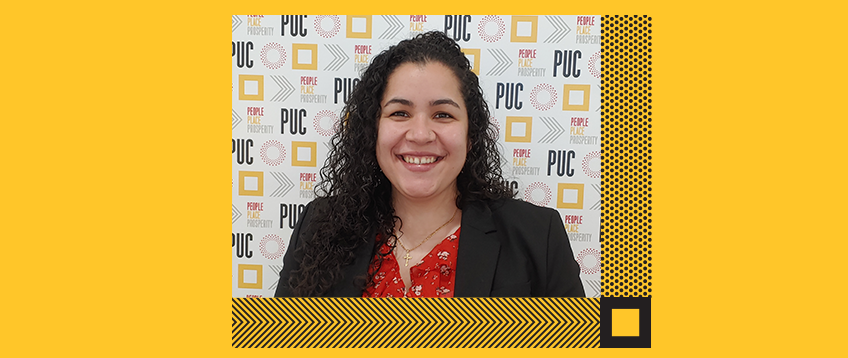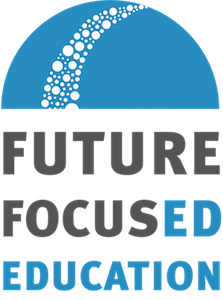How to Combat Institutionalized Racism: Rethink Standardized Testing

“Decision makers are beginning to recognize that we're not going to change anything until we really understand how policies have been intentionally implemented to marginalize and disenfranchise us.”
What role is institutional racism playing in the educational outcomes in Minneapolis?
Across various metrics, Minnesota and the Twin Cities have the starkest and most egregious gaps for Black, Brown, and Indigenous people. When we're thinking about just Minnesota politically, there's this liberal progressive façade, but pockets of super conservative people.
The state has been unable to unpack the systemic racism and systemic abuse. It's so palpable, even in my work at the Capitol. When we're thinking about outcomes related to academic performance, the current discourse often includes a narrative of, "Well the students are failing” or “The schools are failing,” when they should be looking at the institutions that got us here. Instead of asking, "How are we going to help these people succeed?" they should take a step back and look at the systems so that they can be transformed.
I’m more hopeful now than I was when I first moved to Minnesota with respect to the Department of Education. Folks are showing up and a little more willing to have conversation to begin really unpacking what institutional racism means. Decision makers are beginning to recognize that we're not going to change anything until we really understand how these policies which have existed forever have been intentionally implemented to marginalize and disenfranchise us. Black, Brown, Indigenous people have been telling institutions what the problems are and what we need, but there's just this inability to really listen in a legitimate way to then get to the action that’s needed.
How is Pillsbury United Communities going beyond standardized tests?
The work that we're doing with Future Focused is a game-changer. There has been a void and a lack of imagination about how to get beyond standardized testing. Now I see the willingness to be uncomfortable and to try something new. We are ready to do the painstaking work of creating and facilitating focus groups to help us understand what the community needs from its schools. It is so exciting because it's going to have implications beyond our high schools and our portfolio. It’s going to impact the sector as a whole, and hopefully serve as a model as we re-imagine things statewide.
It will require meaningful engagement. That means beyond thinking: "We think we know what these needs are. We're going to sit in our offices and create what we believe is a culturally-affirming curriculum, lesson plans, and curriculum mapping. Then we’ll congratulate ourselves for all the great things that we're doing." Instead of doing that, we will ask our community what they envision. Co-creation is a big part of who we are as part of Pillsbury United. Additionally, this work is pretty radical when considering how educational programming developed and accountability is currently structured.
Do you think the state is ready to fundamentally rethink accountability?
Yes, it certainly is. It’s been a hopeful change to be in conversations at a policy level at the Capitol, and see people recognizing that standardized testing should not be the only way in measuring academic performance. However, there is a gap and a lack of imagination into how to get there. It’s important that we step into the space and say: "This is what we actually mean by accountability, and this is what it could look like more broadly.”
How do you imagine the authorizing process as a tool to dismantle institutional racism?
So the Pillsbury United community is a community-based authorizer in an organization that is 140 years old. It has served underrepresented, underserved, and marginalized communities since the settlement house movement. So we are a charter school authorizer because our community asked us to be one. Who we are as a department of this organization already sets a foundation for looking at educational programming in a different and anti-racist way.
We authorize schools that serve students that traditionally have not been served well by the traditional districts here in the Twin Cities, with two schools in Greater Minnesota. When we think of what quality education is, we first ask what the community wants—which is at odds with the white normative measures of assessments.
At a fundamental level, based on what the community and parents want in their education, we're going to authorize schools that want to serve their students in a targeted way to better serve our Black, Brown, Indigenous students.
What was your journey to become Director at Pillsbury United Communities?
I was born in Perth Amboy, New Jersey. I went to public schools and then to Kean University. I was a kid from a political family and I cut my teeth on the rough and tumble New Jersey politics, working for a state senator the district senator for a couple of years, and worked my way up to a legislative director. Then I took a bit of a detour and worked for a local bank, but realized working for a banking institution was not what I was raised to be.
I became a part of the National Urban Fellows which is a 14-month executive leadership fellowship program and my mentor was from Pillsbury. Then I came to work here and I love, love, loved it. Even though it was not easy. I then had the opportunity to serve as the Legislative and Policy Director in the area of education at the Minnesota Council on Latino Affairs (MCLA). MCLA is a state agency that advises and informs the state's governor, state agencies, and legislature on issues impacting the Latinx community across Minnesota. Now I’m back at PUC leading the department with my fellow colleagues who changed my life and changed my career trajectory.
Why is authorizing schools that serve Black and Brown students so important in Minneapolis?
There's the Minnesota exceptionalism, and this state is a great place to live—except if you're Black, Brown, or Indigenous. Pillsbury is then very intentional about the work it does because we have to be. We serve our niche of schools because the community asked us to. We know that each school is relevant to the communities they serve. It's a portfolio of 9,500 kids, and this is their direct ability to improve educational outcomes for students who have not been served well by traditional districts in the state at large. That is the work of transforming education.

